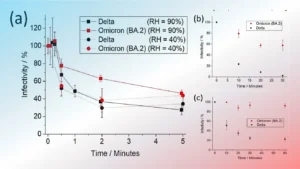What is Farmers’ Rights Act 2001: The Government of India enacted the Protection of Plant Varieties and Farmers’ Rights (PPV&FR) Act, 2001 to recognize the contributions of both commercial plant breeders and farmers in plant breeding activity. Rules for the same were notified in 2003.
The law is in conformity with the International Union for the Protection of New Varieties of Plants (UPOV), 1978 and has sufficient provisions to protect the interests of public sector breeding institutions and the farmers.
The Act also supports the TRIPS agreement. Under the TRIPS agreement, India was in obligation to introduce a system for protecting new plant variety.
The agreement made it obligatory for a Member to provide protection to new plant varieties either through patent or an effective sui generis system or a combination of these two.
Why to Grant Plant Breeder’s Rights?
Protection is afforded to plant breeders as an incentive for the development of new varieties of plants, in order to provide sustainable progress in agriculture, horticulture and forestry.
Improved varieties are a necessary, and very cost-effective, means of improving productivity, quality and marketability for farmers and growers.
Breeding new varieties of plants requires a substantial investment in terms of skill, labor, material resources, money and time.
The opportunity to obtain certain exclusive rights in respect of new with better varieties provides successful plant breeders a chance of recovering their costs and accumulating the funds necessary for further investment.
In the absence of plant breeders’ rights, those aims are more difficult to achieve since there is nothing to prevent others from multiplying the breeder’s variety and selling it on a commercial scale.
Objectives of PPV & Farmers’ Rights Act 2001
To stimulate investments for research and development both in the public and the private sectors for the developments of new plant varieties.
To facilitate the growth of the seed industry in the country through domestic and foreign investment. This will ensure the availability of high quality seeds and planting material to Indian farmers.
To recognize the role of farmers as cultivators and conservers and the contribution of traditional, rural and tribal communities to the country’s agro biodiversity by rewarding them for their contribution through benefit sharing and protecting the traditional rights.
Varieties Registered under PPV & FR Act, 2001
A new variety if it conforms to the criteria of novelty, distinctiveness, uniformity and stability. An extant variety if it conforms to criteria of distinctiveness, uniformity and stability.
Rights under PPV & FR Act, 2001
Breeders’ Rights: Exclusive rights to produce, sell, market, distribute, import or export the protected variety.
Researchers’ Rights: To use any of the registered varieties to conduct experiment or research.
Farmers’ Rights: Farmers variety can be registered as a breeder variety or extant variety.
A farmer can save, use, sow, re-sow, exchange, share or sell his farm produce including seed of a variety protected under the Act.
- Farmers are eligible for recognition and rewards, and for compensation as well.
- Farmers shall not be liable to pay any fee in any proceeding before the Authority or Registrar or the Tribunal or the High Court under the Act.
Implementation of PPV & FR Act, 2001
- For the implementation of provisions of the Act, the Department of Agriculture, Cooperation and Farmers Welfare, Ministry of Agriculture and Farmers Welfare established the Protection of Plant Varieties and Farmers’ Rights Authority on 11 November, 2005.
- The Chairperson is the Chief Executive of the Authority.
- The objective of the authority is to establish an effective system for protection of plant varieties, the rights of farmers and plant breeders and to encourage the development of new varieties of plants and facilitate the growth of the seed industry.
- The authority also works for the acceleration of agricultural development in the country and for stimulating investment for research and development both in the private and public sector for the development of new plant varieties.
Also Read:
Digital Personal Data Protection (DPDP) Act 2023
Cloud Storage and its Importance in Technology











